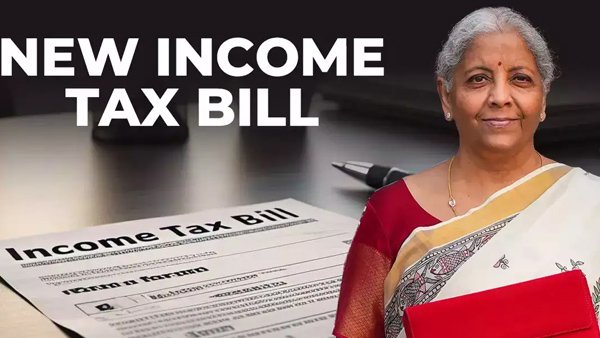The Income Tax Bill 2025 has recently been passed in the Lok Sabha, bringing several important changes to India’s tax system. This bill aims to simplify tax rules and provide relief to taxpayers. Whether you are an individual or a business owner, these amendments will affect how you pay taxes. In this blog, we will explain the key changes in easy words and what they mean for you.
Overview of the Income Tax Bill 2025
The Income Tax Bill 2025 introduces updates to the current tax laws to make the system fairer and more efficient. It was carefully reviewed and approved by the Lok Sabha, India’s lower house of Parliament. The government wants to modernize tax rules and help the economy grow.
Some important points about the bill:
-
It changes income tax slabs for individuals.
-
It offers new benefits for businesses and startups.
-
It introduces stricter rules for tax compliance.
-
The government aims to increase transparency and reduce tax evasion.
This bill marks a major step in India’s tax reform journey.
Major Changes in Income Tax Slabs
One of the most talked-about parts of the Income Tax Bill 2025 is the update to income tax slabs. These slabs decide how much tax you pay based on your income.
Here are the key changes:
-
The basic exemption limit is raised from ₹2.5 lakh to ₹3 lakh.
-
New income slabs have been introduced for better progressiveness.
-
Higher income groups will see a small increase in tax rates.
-
There are additional rebates and deductions for middle-income taxpayers.
These changes aim to reduce the tax burden on lower and middle-income earners while ensuring that high earners pay a fair share.
Impact on Individual Taxpayers
If you are an individual taxpayer, the Income Tax Bill 2025 will affect you directly. Here is what you should know:
-
More people will fall under the no-tax or lower-tax category due to the higher exemption limit.
-
Taxpayers can now save more through new deductions introduced in the bill.
-
Senior citizens get better relief with increased exemption limits.
-
The bill also simplifies filing procedures with easier online options.
Overall, most individual taxpayers can expect to pay less tax or enjoy more benefits starting this financial year.
Provisions for Businesses and Startups
The Income Tax Bill 2025 also focuses on businesses, especially startups, to support growth and innovation.
Key provisions include:
-
Reduced corporate tax rates for new startups for the first five years.
-
Incentives for businesses investing in green technology and sustainable practices.
-
Simplified tax filing and reporting requirements to reduce compliance burden.
-
Penalties for tax evasion increased to discourage fraud.
These changes encourage entrepreneurship and help businesses to thrive while maintaining fair tax collection.
New Tax Compliance Rules Introduced
To ensure better tax governance, the bill introduces new compliance rules:
-
Mandatory digital filing of tax returns for most taxpayers.
-
Stricter deadlines for filing to avoid penalties.
-
Increased use of data analytics to detect tax evasion.
-
Requirement for taxpayers to link Aadhaar with PAN for smooth processing.
-
Enhanced scrutiny of large transactions and high-value assets.
These rules help improve transparency and make sure everyone pays their fair share of taxes.
Government’s Aim Behind the Amendments
The government has clear goals behind passing the Income Tax Bill 2025:
-
Make the tax system simpler and easier to understand.
-
Provide relief to lower and middle-income taxpayers.
-
Encourage startups and businesses to grow and create jobs.
-
Improve tax compliance and reduce black money.
-
Boost economic growth by modernizing tax laws.
By updating the tax rules, the government hopes to create a fair and efficient tax system that benefits all citizens.
Public and Expert Reactions to the Bill
The Income Tax Bill 2025 has received mixed reactions from the public and tax experts.
Positive reactions:
-
Many welcome the higher exemption limit and lower taxes for middle-income groups.
-
Businesses appreciate the startup incentives and reduced compliance burden.
-
Experts praise the move towards digital filing and better transparency.
Concerns raised:
-
Some feel the tax rates for high earners have increased too much.
-
A few worry that stricter compliance rules may be tough for small taxpayers.
-
There are calls for more clarity on certain deductions and penalties.
Summary of reactions:
| Supportive Points | Concerns Raised |
|---|---|
| Relief for middle-income taxpayers | Increased tax rates for high earners |
| Startup incentives and easier filing | Compliance rules might be complex |
| Focus on digital and transparent system | Need for clearer deduction guidelines |
The government has promised to monitor the impact and make further changes if needed.
Conclusion
The Income Tax Bill 2025 passed in the Lok Sabha brings many important changes. From new income tax slabs to support for startups and stricter compliance rules, these amendments will affect both individual taxpayers and businesses. The government’s goal is to create a simpler, fairer tax system that supports economic growth. While the bill has been welcomed by many, some concerns remain. It is important for taxpayers to understand these changes to plan their finances better in the coming years.

